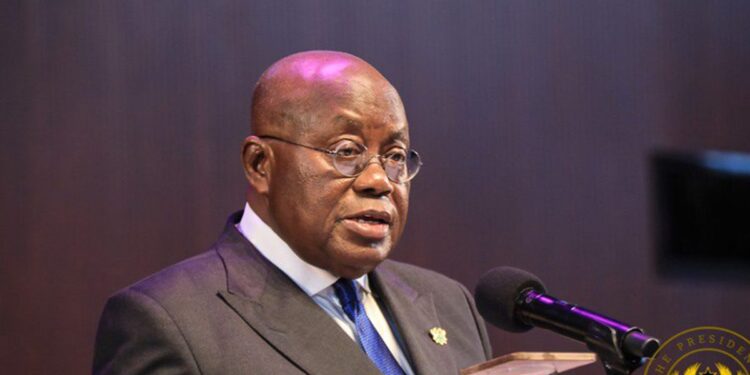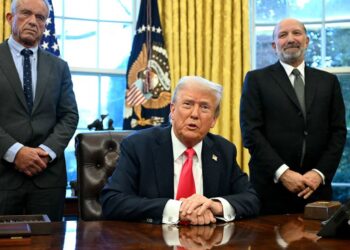President Akufo-Addo interacting with Ian Liddel-Grainger (right) and Speaker Alban Bagbin (left) at the Commonwealth Parliamentary Conference in Accra.
President Nana Akufo-Addo says the legislature, as the fulcrum of democracy, has the responsibility to represent and promote the interests of the citizenry.
According to him, the Commonwealth Charter requires commitment of member states to building free, just and democratic societies, as well as the advancement of peace, security and economic development towards improving the quality of lives of the peoples within the Commonwealth.
The President said yesterday at the opening of the 66th annual conference of the Commonwealth Parliamentary Association (CPA) in Accra that today’s challenges in the democratic journey not only put politicians’ commitment to the principles of the Commonwealth Charter to the test, but also call into question the effective application of these principles in responding to citizens’ needs and aspirations.
“The Charter, as you are all aware, projects the values of good governance, the rule of law, protection of fundamental human rights and freedoms, promotion of international peace and security, as well as protection of the environment.
“Undoubtedly, these values and principles are fundamental to building just, inclusive and prosperous societies for all,” he noted.
The President, therefore, said they had the onerous responsibility, as members of the Commonwealth, to translate these principles into tangible and measurable outcomes to guarantee human security.
“Admittedly, this conference is being held at a time when the world is confronted with a myriad of grave issues, including environmental, financial and security ones, which are having negative impacts on lives and livelihoods, especially for those of us in developing countries,” he stated.
For him, surmounting these challenges requires collective and concerted efforts, whilst upholding the democratic and human rights principles that validate our common existence as a Commonwealth of Nations.
Speaker
Speaker of Parliament, Alban Sumana Kingsford Bagbin, said effective separation of powers of government might have been achieved by the parliaments of developed countries, but for some parliaments, it remains a mirage.
“Yet, democracy will remain elusive if we are not deliberate in our efforts to ensure the independence of parliaments,” he asserted.
Quoting former US President James Madison, Mr. Bagbin said the accumulation of all powers, legislative, executive, and judiciary, in the same hands, whether of one, a few, or many, and whether hereditary, self-appointed, or elective, may justly be pronounced the very definition of tyranny.
“We can strengthen parliaments if we empower our oversight committees to effectively review government actions, budgets, and policies,” he noted.
He explained that parliament could be strengthened through civic education programmes that inform citizens about their rights and the need to protect parliamentary democracy.
Speaker Bagbin said parliaments must leverage the strong relationships they have with civil society and the media to facilitate public participation in their work and to expose infractions on democratic principles.
Majority Leader
Majority Leader, Osei Kyei-Mensah-Bonsu, stated that democratic governance has evolved from a male-dominated system to effective cross-community participation, with a focus on the inclusion of women and people with disabilities.
This system, according to him, best fosters or allows for effective participation in democratic governance.
Mr. Kyei-Mensah-Bonsu, who doubles as the Vice Chairman of the CPA Executive Committee, however, said there are still inadequacies of the current democratic governance that demand the attention of parliamentarians.
He noted that the presence of high-level delegations from the CPA’s nine regions participating in the programmes and activities held over the last few days showed that, regardless of where they come from, whether from federal or unitary states, large or small nations, Westminster or Presidential systems, “we can always come together to achieve a common goal for the benefit of humanity”.
He said beyond the conference proceedings, delegates have also had the opportunity to explore the rich tapestry of Ghana’s cultural heritage and natural beauty.
He disclosed that delegates would take part in eight workshop sessions covering a wide range of topics, including the role of Parliament in combating terrorism threats, the role of the Commonwealth in international security and peacebuilding, and environmental approaches to addressing energy, poverty, and gender issues.










Discussion about this post